- Home >
- News >
- Local News
Veteran suicide numbers spur local group to action
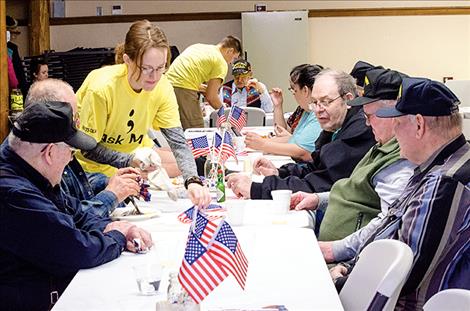
Karen Peterson
RONAN TRIBAL SENIOR
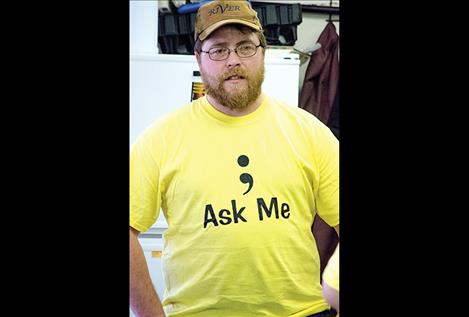
Karen Peterson
Army veteran Justin Blevins wears one of the "Ask Me" shirts created by the Your Life Matters Project volunteers to bring awareness to suicide issues.
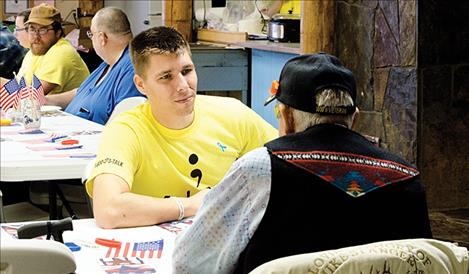
Karen Peterson
Army veteran Jeff Newton talks to other veterans during the event.
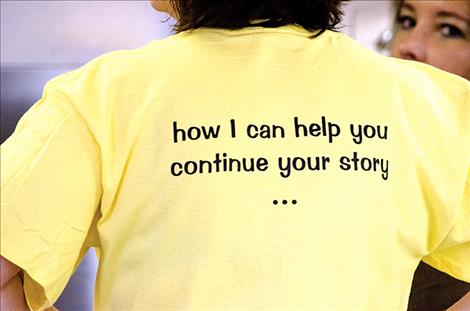
Karen Peterson
The back of the YLM's shirt encourages people to ask volunteers about resources to help prevent suicide.
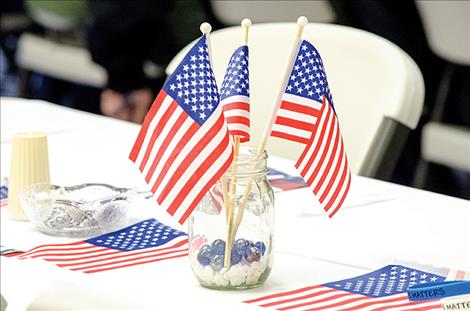
Karen Peterson
Issue Date: 1/31/2018
Last Updated: 2/3/2018 11:39:31 AM |
By
Karen Greene
Keep Reading!
You’ve reached the limit of 3 free articles - but don’t let that stop you.















